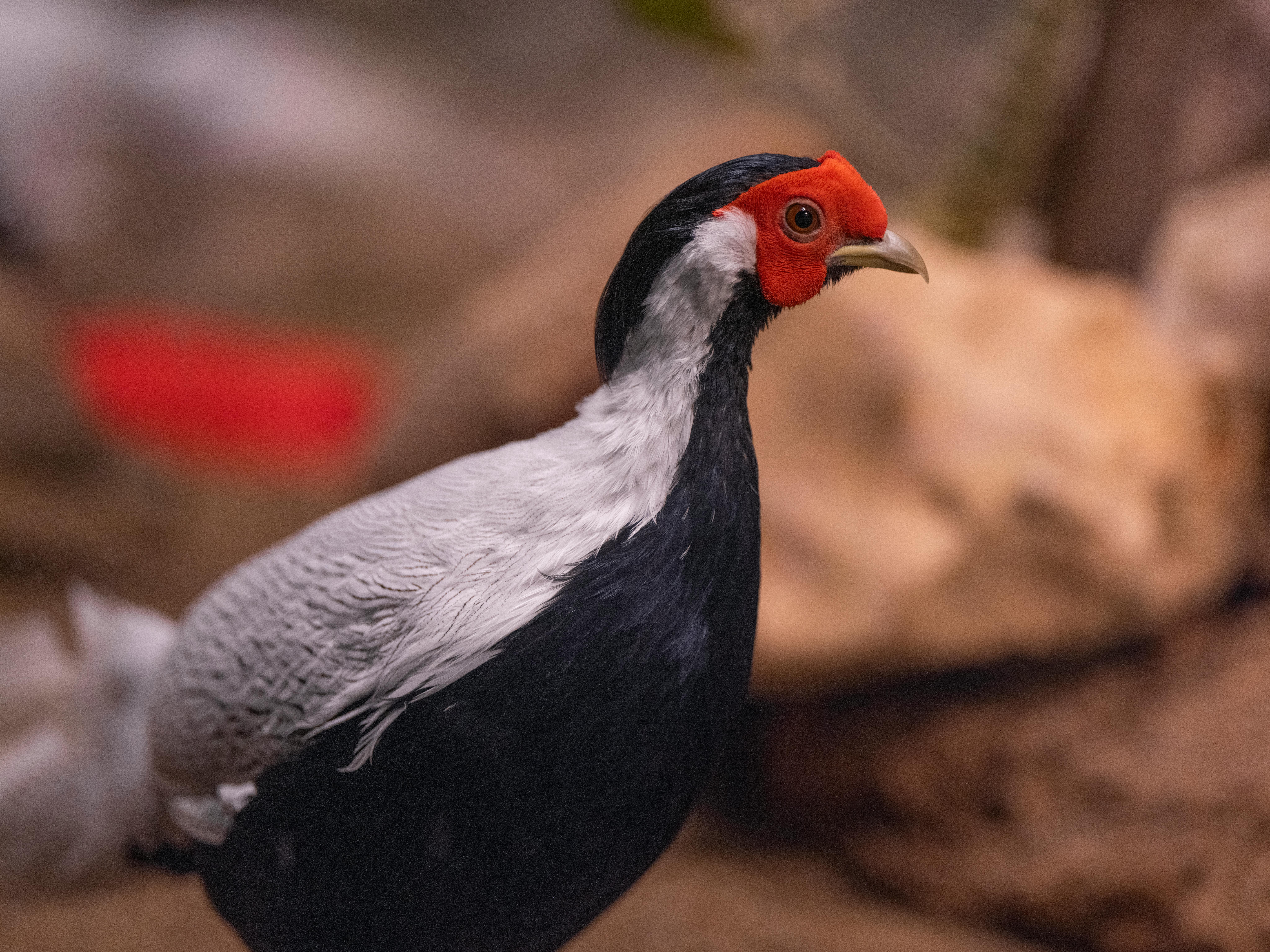Essential Guide to Syrian Hamster Diet: Top Foods and Tips for 2025

Understanding the right diet for your Syrian hamster is crucial to ensuring their health and longevity. With unique dietary needs, hamsters require a balanced diet that fuels their energy and keeps them healthy. This guide provides an in-depth look at the best foods, feeding practices, and nutritional components tailored specifically to Syrian hamsters. Discover the varieties of hamster food available, the essential nutrients they need, and practical feeding tips to maintain a healthy hamster diet.
By addressing these dietary requirements, you'll promote your pet’s well-being and prevent common health issues such as obesity and digestive problems. This article will walk you through the essential aspects of a healthy hamster diet, including safe foods, homemade options, and the importance of hydration. Let’s start exploring the exciting world of hamster nutrition!
Key takeaways from this article include a detailed overview of the best diet for Syrian hamsters, essential components to include in their meals, and common feeding mistakes to avoid.
Understanding the Nutritional Needs of Syrian Hamsters
To provide the best care for your Syrian hamster, it's pivotal to understand their unique dietary requirements. Hamsters are omnivores and naturally consume a wide variety of foods in the wild, comprising grains, seeds, and fresh produce. However, their nutritional needs effectively translate into a home environment by selecting appropriate food types.
The primary components of a Syrian hamster's diet should include protein, carbohydrates, fats, vitamins, and minerals. Each nutrient plays a vital role in their overall health. Protein is essential for muscle development and growth; therefore, including quality protein sources in their diet is crucial. Alongside protein, fiber plays an important role in maintaining digestive health, helping to prevent obesity and gastrointestinal issues.
Commercial hamster foods often contain a mix of pellets, seeds, and grains. It's essential to choose high-quality Syrian hamster pellets that provide a balanced source of nutrition. Products labeled as complete hamster diets will usually incorporate the right blend of nutrients. However, supplements such as fresh vegetables and fruits should be included to enhance their diet.
Understanding portion sizes is also vital to prevent overeating and maintaining an optimal weight. Monitor your hamster's eating habits and adjust their food intake based on their activity level and overall health.
For more insights on crucial dietary practices, visit our detailed discussion on hamster nutrition guides.
Macronutrients: Proteins, Carbs, and Fats
When assembling your Syrian hamster’s diet, focusing on macronutrients is central. Protein-rich foods, such as cooked eggs, mealworms, and lean meats, can offer vital amino acids for your pet's health. Typically, protein should comprise around 15-20% of their diet, particularly during growth stages or for pregnant females.
Carbohydrates work as the primary energy source for hamsters. High-fiber grains and whole grains are preferable as they assist in maintaining digestive health. Healthy fats, derived from options like nuts and seeds, contribute to overall well-being but should be provided sparingly to prevent obesity.
Introducing these macronutrients into their meals can promote a balanced, healthy diet that meets their unique needs. Make sure to rotate protein sources and use them as occasional treats rather than daily staples.
Vitamins and Minerals: Essential for Health
The role of vitamins and minerals is essential in supporting the metabolic processes of your Syrian hamster. Essential vitamins, such as A, D, E, and C, can aid various bodily functions, including immune health and skin condition. Fresh vegetables such as carrots, bell peppers, and leafy greens serve not only as tasty snacks but also as vital sources of these nutrients.
Minerals like calcium and phosphorus are crucial for bone health. A small amount of fresh hay can not only enhance their diet but also provide necessary fiber to aid digestion. Always ensure that your hamster has access to clean, fresh water to keep them hydrated and facilitate nutrient absorption.
Monitor for signs of vitamin deficiency, such as lethargy, poor coat quality, or unusual weight loss. Maintaining balanced nutrient intake is critical for longer life expectancy and overall health.
Choosing the Right Pellets and Commercial Diets
Selecting the right commercial diet can considerably impact the health of your Syrian hamster. Quality hamster pellets are designed to deliver comprehensive nutrition, minimizing selective feeding behavior common among hamsterswho might prefer tasty bits over nutritional needs.
Look for hamster feed that lists good-quality ingredients, such as whole grains, seeds, and a mix of appropriate vitamins and minerals. Avoid feeds with artificial preservatives, colors, or added sugars, as these can lead to health issues over time.
Moreover, it’s worth noting the importance of researching different pellet brands to find the best and most nutritious options available. Consider asking for recommendations from your veterinarian or checking resources like hamster food comparisons to make informed choices.
Incorporating Fresh Foods into Your Hamster’s Diet
Fresh foods can play an integral role in enriching your Syrian hamster’s diet. While pellets provide a foundational diet, incorporating a variety of fresh vegetables and fruits ensures that your hamster receives a broader spectrum of nutrients. However, moderation is key to prevent digestive upset.
Best Vegetables for Syrian Hamsters
Leafy greens such as romaine lettuce, kale, and spinach are excellent choices for your hamster’s diet. Vegetables like carrots and bell peppers offer vitamins essential for maintaining good health. Always wash thoroughly to remove any pesticides, and introduce new vegetables slowly to avoid gastrointestinal distress.
Remember to vary the types of vegetables given, as this promotes interest in their meals and prevents boredom. Limit the amount offered, typically only a small slice or a few small leaves 2-3 times weekly, to maintain a balanced diet.
Fruits Safe for Hamsters
Fruits can also be an exciting treat for your hamster, offering natural sugars and vitamins. Safe options include apples (without seeds), blueberries, and bananas. However, fruits should only be given in small amounts due to their sugar content.
When introducing fruits, opt for small portions, and observe for any adverse reactions. Removing any uneaten portions promptly helps maintain hygiene and avoid spoilage, which can lead to health issues.
Protein Sources and Other Treat Options
Adding protein-rich foods like cooked chicken, boiled eggs, or mealworms supplements your hamster's diet with necessary amino acids. These can be offered occasionally as a treat rather than a daily necessity.
Commercial hamster treats can also be beneficial, provided they are made from natural ingredients without additives. Always read labels and avoid those high in sugars or artificial components. Homemade treats made from safe grains or freeze-dried fruits are great alternatives that you can easily prepare.

Feeding Schedule and Portion Control
Establishing a consistent feeding schedule is paramount when caring for your Syrian hamster. Understanding their feeding habits typically involves providing food daily while ensuring proper portion sizes are adhered to prevent obesity and maintain digestive health.
Creating a Balanced Feeding Routine
Feeding your Syrian hamster once a day is adequate, allowing them to consume what they need without overindulging. Young hamsters may require more frequent meals due to higher energy demands, but adult hamsters should primarily follow a daily feeding routine.
When offering pellets, a general guideline is about 1-2 tablespoons daily, adjusting as necessary based on the hamster’s activity level and age. Remember that any fresh foods offered should be accounted for within their total dietary intake.
Understanding the Importance of Hydration
Never underestimate the importance of hydration in your hamster's diet. Clean, fresh water should always be accessible, preferably through a water bottle that can prevent contamination. Hamsters are not very good at returning to food and water if they are excited or anxious, so maintaining consistent accessibility is essential.
Monitor the water levels daily and clean the bottle or bowl as needed to ensure your hamster always has access to clean drinking water. This practice prevents dehydration, ensuring your pet remains healthy and active.
Managing Weight and Health Checks
Lastly, keeping a close eye on your hamster's weight, body condition, and overall health is crucial. Regularly check for any noticeable changes in their eating habits or weight management issues. If they appear to be gaining weight, consider adjusting their diet and consult your veterinarian for advice on dietary management.
Common Mistakes in Syrian Hamster Diet
Avoiding common feeding mistakes can significantly affect your Syrian hamster's health and happiness. Understanding these errors can help foster better practices that promote a suitable diet.
Overfeeding and Its Consequences
Overfeeding is one of the most significant issues in hamster care. With their small size, overfeeding can quickly lead to obesity, which can complicate other health issues and decrease their lifespan. Stick to recommended portion sizes and be cautious when offering additional treats or fresh foods.
Ineffective Food Selection
Choosing the wrong type of food can have negative impacts on your hamster's health. Opting for low-quality commercial foods without complete nutrition can lead to deficiency-related issues. Always prioritize healthy treats and source high-quality hamster food that ensures comprehensive nutrient availability.
The Importance of Variety
Sticking to a monotonous diet devoid of fresh produce can lead to nutritional deficiencies. Diversifying your hamster's diet with vegetables, fruits, and occasional protein sources may prevent boredom and encourage more natural foraging behaviors.
Conclusion: Maintaining a Healthy Syrian Hamster Diet
Crafting a balanced diet for your Syrian hamster is instrumental in maintaining their health and well-being. By selecting quality foods, understanding their dietary needs, and incorporating fresh ingredients into their diet plan, you're laying the foundation for a long and fulfilling life for your pet. Monitor their weight and make adjustments as necessary, ensuring they receive a balanced nutritional profile that fosters good health.
For additional information and resources on hamster care, explore our comprehensive guides linked throughout this article. The journey into hamster nutrition begins with your commitment to providing a healthy and varied diet!
